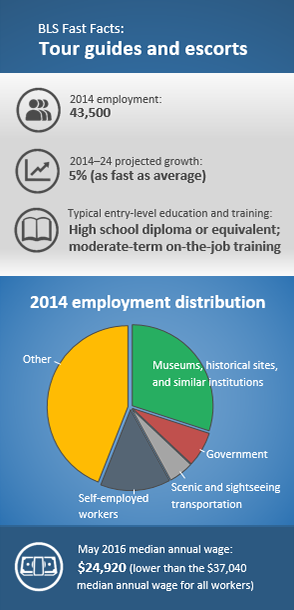An official website of the United States government
 United States Department of Labor
United States Department of Labor
| July 2017

Park interpreters’ ultimate goal is to create an emotional connection between our parks, trails, and natural resources and our visitors. We do this through programs, signs, and exhibits, mainly making sure that visitors have a good experience.
The beauty of this job is that no 2 days are alike, so there’s no “typical” day. Some days I could be hiking all day, others I do things like take care of the animals at the nature center, clean hummingbird feeders, plan summer camps, lead kayak tours on the lake, or do the less glamorous paperwork in the office.
I grew up in Mexico City, Mexico, where outdoor spaces are limited. But I always enjoyed being outside.
When I first moved to the Charlotte area, I started working at an environmental education center. Getting paid to walk in the woods, play nature games, and explore with others was the best thing ever! I also spent time leading groups through a high-ropes course and teaching canoeing basics. All this time outside made me realize how fun a job can be.
I have a bachelor’s of science degree in ecology with a minor in natural resources management. But the most important thing you should do to prepare is to be a constant learner.
We can all learn from peers and others, so networking and being involved with professional organizations have been a big part of my career. Through the National Association for Interpretation, for example, I have become a Certified Interpretive Guide and Certified Interpretive Trainer and have met other professionals from all over the country.
Being personable and able to relate stories to our visitors is a very important skill for us to be successful. When visitors arrive at our parks, we don't know why they’ve come. It’s our job to figure that out and to provide a memorable experience, hoping that they enjoy it so much that they will care about the park and what it represents.
Sharing working space with folks who care about nature as much as I do is a blessing. Being able to go for a hike during my lunch break is a great opportunity that not everybody has.
And I get to do what I love: spend time in nature and share it with others.
In an urban environment, it can be challenging to bring folks to the park. Some people may be afraid of nature or just don’t realize that we are part of the environment and that nature is an important part of our community.
Hone your knowledge and skills. Our job is a combination of science and art, and using research-based knowledge when talking to visitors is key.
Knowing what is in front of you is as important as finding ways for people to understand why they should care. The best park interpreters I’ve met know a lot about nature but also are great musicians, storytellers, and natural leaders.
Elka Torpey, "Park interpreter," Career Outlook, U.S. Bureau of Labor Statistics, July 2017.